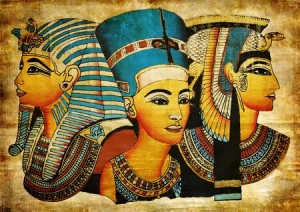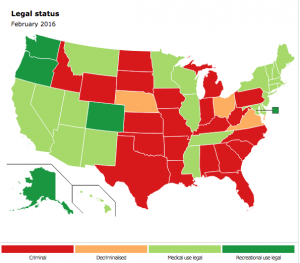As I left class today, I realized it was time to reevaluate my thoughts on evolution. Like Dr. Cavener, I was raised in a religious household, however my parents never discouraged the formation of our own opinions. My high school science classes briefly touched on the topic of evolution, but never went deep into the subject. The one thing I took away from my high school biology class was that humans share 50% of our DNA with bananas. Today’s class talk really got me thinking, about evolution. As a species, where did we come from?
Today’s class talk really got me thinking, about evolution. As a species, where did we come from?
The Beginning
According to BBC.co.uk, the earliest evidence of life on Earth can be traced back 3.8 billion years. These first life forms were single celled, similar to bacteria. As time passed the DNA strains present in these organisms mutated. These mutations caused both physical and psychological changes in species.
It was mutations like this that have caused giraffes to have long necks, as stated by Dr. Cavener, and has made humans the way they are. In fact, 3.794 billion years worth of mutations allowed for species to become bipedal. Bipedal is just a fancy way to say, walking on two legs.
Though mutations play an integral part in evolution, it is important to remember that mutations are random. The mutations happened by chance, but the mutations that have become mainstays in the animal kingdom are not exactly random.
The Darwinian Concept
English naturalist Charles Darwin’s theories regarding genetic mutation are widely excepted throughout the world. He claimed that though mutations in DNA strains are random, certain mutations remain and become the norm due to a process of natural selection. If a genetic mutation aided in the survival of an organism, then the organism would survive, reproduce, and pass that mutation to its offspring. This would continue onto the next generation and so on.
Years later work by biologist R.A. Fischer reinforced Darwin’s theories in his book “The Genetical Theory of Natural Selection”. Fischer used mathematical formulas and statistics to explain mutation survival. This quantitative addition, developed the evolution theory.
Who are we?
Genetic mutations make us who we are. Even the smallest of mutations can cause huge differences. Even if we share almost of all our DNA with another species, it just takes a few differences in the genetic makeup to cause them to belong to completely different classifications.
At this point I think it is common knowledge that we descended from primates. In fact we share 98% of our DNA with chimpanzees. We also share 85% of our DNA with Zebra fish and 15% of our DNA is shared with Mustard Grass. Though we are incredibly genetically similar to these creatures, differences in the DNA sequence make huge impacts.
Faith or Fiction
Though my religious beliefs cause me to want to agree religious texts saying God created man out of dirt, my instincts tell me not to. The data and research is insurmountable. Like we talked about in class faith does not equal science, and in this case my faith is not strong enough to overcome reasoning.





 Cleopatra. Is it because of these historical figures that there is an association to power/confidence and makeup?
Cleopatra. Is it because of these historical figures that there is an association to power/confidence and makeup?













